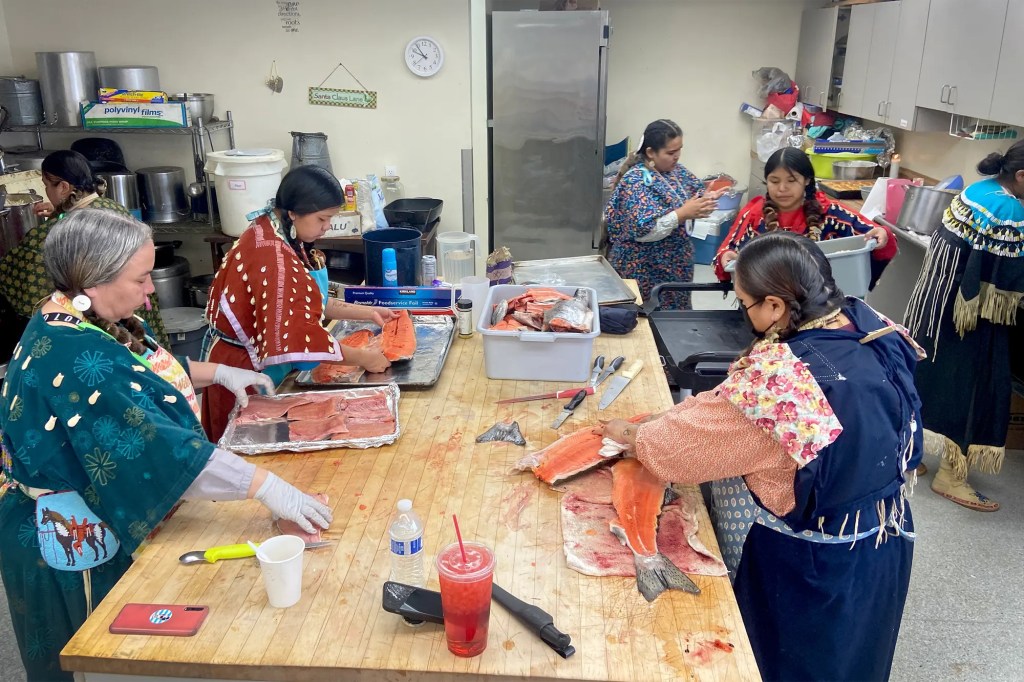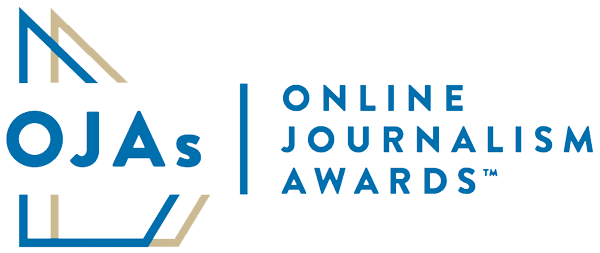
ProPublica, along with partners Oregon Public Broadcasting and NBC News, took extra care in approaching Indigenous communities in advance for this excellent portfolio series. The pieces focus on difficult issues: unreturned remains from museums and universities, and a failure of the US government to screen for toxins in salmon.
The Indigenous communities pushed the reporters to think both about the framing of the projects, ensuring not to paint its subjects as victims, as well as detailing the need for new and valuable information that could be used to continue pushing institutions for results. They also asked the journalists to be mindful of what data was shared and how.
We spoke with Asia Fields and Maya Miller to provide more detail on how these projects came together and the steps they took to learn more about the communities they were working with.
What motivated you to focus on these dual subject matters?
Our engagement reporting on both repatriation and threats to salmon was motivated by a desire to create journalism with and for Indigenous communities without causing harm. We reached out to Indigenous leaders at the outset of our project and sought feedback throughout. We also took concrete steps to be transparent with the people we were centering in our reporting.
What insights or breakthroughs did your teams experience that would be important for other journalists to learn from?
We received feedback that made us rethink our approach to our projects, as Indigenous leaders had some concerns that the way we presented data could harm their communities. It took time and flexibility to discuss this feedback with our teams and to adapt. And it showed us the importance of going to people affected by the issues we were reporting on, rather than assuming we knew what would be helpful or harmful. Journalists wanting to incorporate feedback in a project should know that it takes time, and that they have to be open to adapting their approach based on what they hear. Communicating this to editors is also critically important.
How have lessons from this project influenced your approach in subsequent work?
The repatriation and salmon projects showed us the importance of consulting with communities early, as what we heard shaped our approach to our projects. It can take time to build the trust needed to gather feedback and decide how to respond. We would also like to do this throughout the reporting process on future projects, to ensure our reporting aligns with community needs as our projects develop.
Beyond your team’s work, what inspiring journalism project(s) have you come across lately that others should keep an eye on?
We are always inspired by the Documenters Network, as well as Documented’s WhatsApp-based community reporting, and the work of other engagement journalists, like those on The Seattle Times’ teams dedicated to mental health and education. We also feel we have to shout out our colleagues Maryam Jameel and Melissa Sanchez, who have done incredible work connecting with farm workers in Wisconsin (an interview with them can be found here). Their reporting has been a true public service. Another recent project Asia appreciated was Giorgia Lupi’s New York Times guest essay that features the experiences of people with long COVID, as well as Ed Yong’s essay on lessons from working with COVID long-haulers. Maya noted the organization’s approach to reporting on systemic issues in treating mental illness in New York City, such as this story reporting out what happened in the lead-up to 94 acts of violence.
Launched in 2000, the Online Journalism Awards are the only comprehensive set of journalism prizes honoring excellence and innovation in digital journalism around the world. The call for entries for the 2024 awards will be open April 4–May 9.
Explore the 2023 winners and finalists Volunteer with the OJAsThe Online Journalism Awards™ (OJAs), launched in May 2000, are the only comprehensive set of journalism prizes honoring excellence in digital journalism around the world.

Posted By
Online Journalism Awards
Categories
Stories